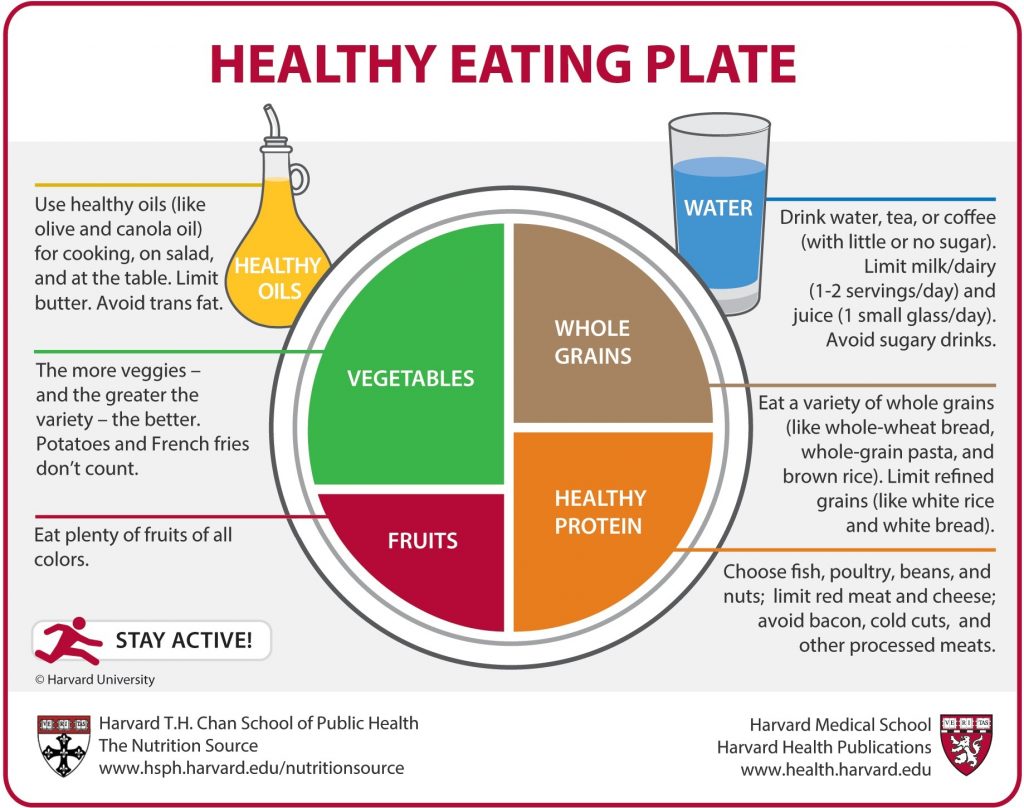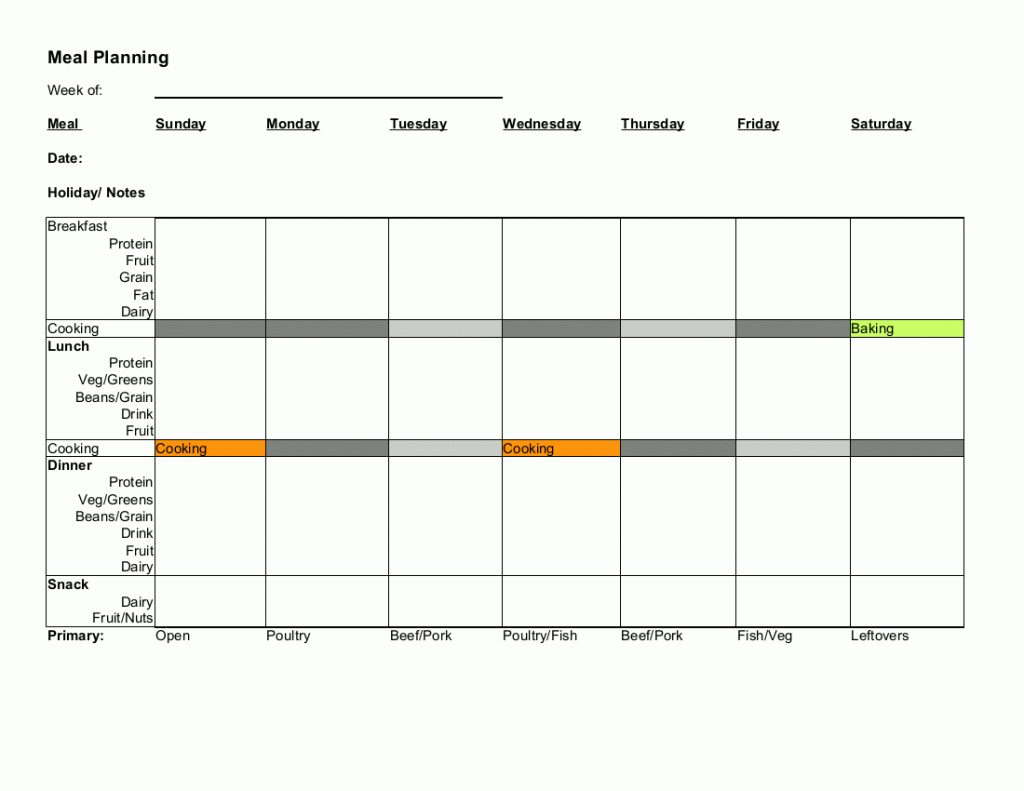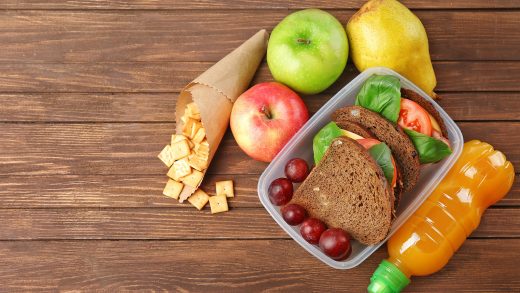This blog is all about helping single men (and women and others) eat better. A typical bachelor’s eating pattern consists of pizza, fast food, and frozen dinners. That is unhealthy, it’s also expensive and lacking in joy. Cooking your own food is not just cheaper, it’s healthier. Even if you make some sweet, fatty food, it’s still better than what you would get at any store. Why? Because you control it rather than the food controlling you.
You have to find the right balance for you, personally. This plan takes a bit of work. It is not a quick weight loss scheme. You need a plan you can live with for the rest of your life. Weight loss is not necessarily the goal, but it is likely you will lose weight as you learn about how your own body functions and pay more attention to it. Just having to think about what you eat today is enough to constitute self-caring.
It is highly recommended everyone start by consulting their physician. Explain what it is you want to do and ask if there are any health-related concerns. Ask for a referral to a dietician or nutritionist. That also is the first step if you want to increase your activity level, which you should do.
That sounds like a lot of work before you even get started. But the more thought you put into your eating plan, the easier It will be to resist unplanned snacks, spontaneous eating, and bachelor eating patterns. This will be a big change in your daily life, so be prepared for it. I don’t intend to sound any alarms, but empty promises give empty results. Use your time before you meet with the clinician to think about where are your lines in the sand. Think about what you can realistically do with your schedule, income, environment, and any other distractions you now face. What foods can you not live without? Maybe make a list. You can find a way to work it into your eating plan. Go in with some questions, go over the plan with them, and ask for any help you might need in sticking with these changes.
Some people will find all this easier than others. But The Bachelor’s Kitchen Eating Plan is about what makes sense to me and from my way-too-many years of obesity. My bachelor-style eating finally caught up with me when I hit my 40th year. All those years of a mostly sedentary life took their toll. So, as a trained journalist, I began doing research. I am not a licensed clinician of any kind. Just a guy who has seen those clinicians and has been dealing with all this for a long time. If this idea is not for you, I understand and wish you luck in finding something that works for you. On the other hand, what do you have to lose by giving it a try? You will fall off the wagon. But, as they say in learning how to ride a horse, just get up and start again.
Besides seeing some professionals, reading a book on nutrition might be a good idea. Don’t get bogged down in the jargon and all that scientific information and measurements. The best rule has always been, and continues to be, a balanced diet heavy on fruits and vegetables.
The next goal is to come up with a weekly eating plan. This should not be detailed, but cover all your needs, more of a reminder than anything else to use when you are planning your meals. I suggest you consider rules such as these:
- Try to have at least three meals a week that are vegetarian. Americans eat more meat than any other country. Not only does it affect our health, but it also is damaging to the environment to raise animals in a concentrated way such as we use today. Some people like to do a “Meatless Monday” or some other day of the week. I like to spread them out over the week, so I have one vegetarian breakfast, a lunch, and a dinner each week, but not necessarily on the same day.
- Three small meals a day, with a snack or two, is necessary to keep you on your plan, ensuring that you don’t get too hungry between meals. Many people don’t eat some meals, like breakfast or lunch. But that puts pressure on you at other meals to make up for that deficit. Your body needs the fuel to keep itself warm and functioning. Feeding multiple times a day helps keep the energy level up and makes it easier to stick to your plans.
- Figure one day for shopping, preferably before the weekend. Grocery stores are very busy on weekends and they run out of popular items early. But you must decide what is the best day for you.
- One day a week needs to be set aside for cooking and preparation work. Most people choose Sunday afternoon or evening. But you have to pick the right day for you. This should be the same or next day as the grocery shopping. Grocery items are much easier to deal with when you first get home from the store. If you have to, make an appointment with yourself to block out that time in your calendar.
- You should also set aside part of the day before grocery shopping to peruse the grocery store’s weekly ad and then begin planning your week’s menus and making your shopping list. Always make a shopping list. I keep a notebook app on my phone with my grocery list on it so I can add to it whenever I think of something that I need to buy.
- Include particular types of foods or proteins as a part of your eating plan. For example, you might want to set aside one day for seafood or poultry. You might want to have homemade pizza on Saturday nights. Also, make plans for dealing with holidays and special occasions.
- This is your plan, so make whatever personalizations to the plan you want. Just be sure to stay within your nutrient guidelines. Be sure to have a daily dose of fruit and vegetables, especially green vegetables.
- Learn about portion sizes. It is important you read the labels on food. We have become accustomed to large portions. It really is true that you eat less if you use smaller plates and bowls.
- Use a food database to keep track of your eating, so you can use that data to adjust your eating plan if you find you are heavy in one area or another. I like UnderArmor’s My Fitness Pal, an online website and a phone app. Yes, a food diary is tedious and not pleasant. But it’s the best way to find out what you’re REALLY eating (as long as you’re honest, and you should be) and where you need to make changes in your eating plan. The database on that site is one of the best I’ve found.
- Use a small notebook or an app on your cell phone that allows you to make notes when they occur to you. We almost always forget by the time we get to write it down. You can also use it to keep track of your eating and drinking so you can enter it in your food diary later. VoiceMemo is ideal for this, that way you don’t even have to write. You just have to remember to check your memos later.
- Buy a food scale and other measuring devices like spoons and measuring cups. Then use them not just when you’re cooking but when you are plating, so you get an accurate portion to make keeping track easier.
- Don’t think you can never eat bad-for-you food or sweets again.
- Make exercise a part of your eating plan, particularly an activity outside. Most of us have mostly sedentary lives and we are still eating like our parents and grandparents did when most people worked on farms and in factories. We mostly work in shops, warehouses, and offices with less activity. We drive cars and go from our home to our garage to our car to our work garage and to the office, all without ever really going outside. We are more disconnected from the world around us.
- Learn to eat mindfully. This is not some wishy-washy New Age stuff. It really works. Many people, even many doctors, see our food as just fuel our body needs. But food is so much more. That is part of the reason we have a hard time keeping weight gain away. It is tied to our health, our mood, our ability to think, our memories, our culture, our childhood, and everything else that makes up who we are. Don’t just shovel it in, barely tasting it, and not thinking about it. Instead, slow down. Pride yourself on what’s on your plate if you made it. Take in the smell. Feel your mouth water. Chew deliberately until the food is well mashed and easy to swallow. Don’t make your stomach work harder by only partially chewing your food. Take your time to enjoy the food. If you are afraid the food will get cold before you finish, your portion is way too big.
- Most of us were trained as children to clean our plates. In my house, we could have as much as we wanted, but we had to eat what we took. Since our eyes were often larger than our stomachs, we overate to clean our plates. But you are not a kid anymore. If you start to feel full, just stop. If you can, put the rest away for later. But it’s better to throw away the food than to get fat by eating too much.
Here is an example of an eating plan.
Once you have done this preliminary work, you are ready to begin The Bachelor’s Kitchen Blog Eating Plan and put it into practice. Make adjustments are you need to for your lifestyle.






